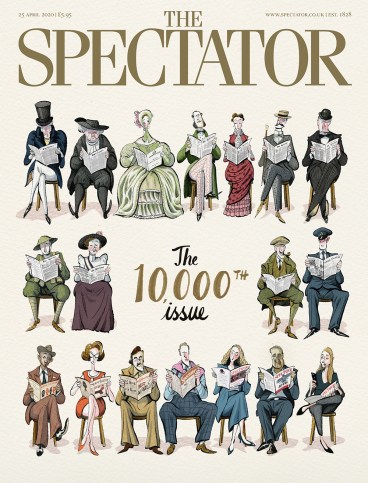Writing my High Life column made a man of me
As Cole Porter might have said, only second-rate people go on and on about their inner lives. Self-analysis, according to Cole, is the twin of self-promotion. Yet in this 10,000th issue of the world’s oldest and best weekly, and in my 43rd year of writing High Life, I have to admit to a bit of










